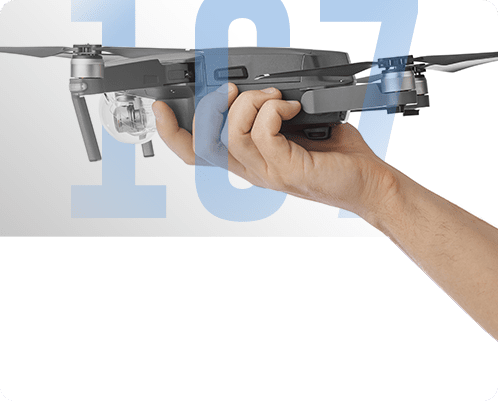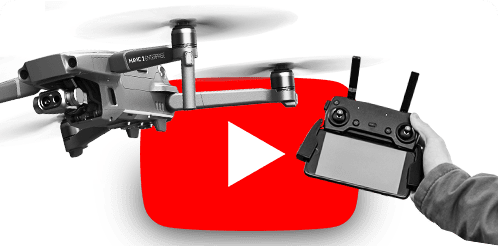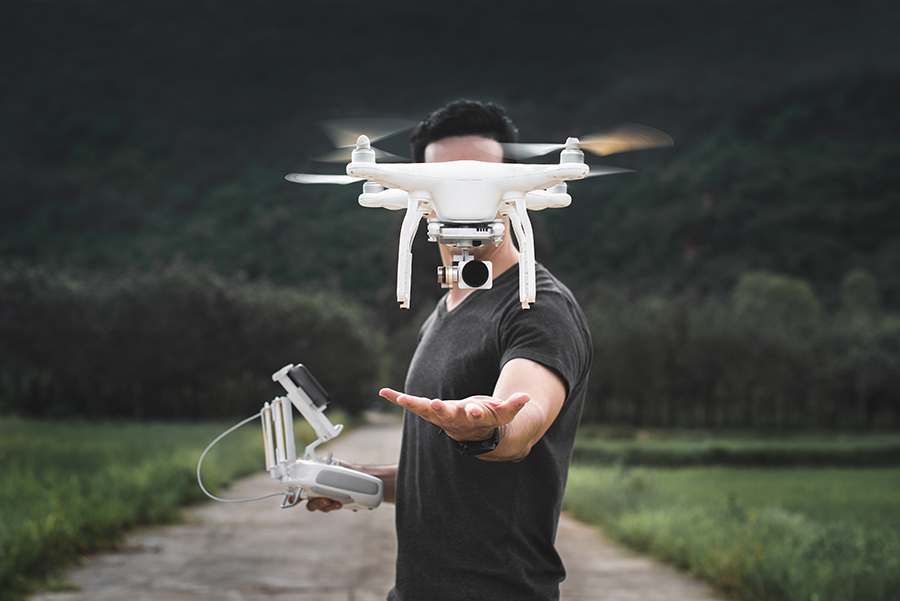Being a professional drone pilot has become a more common aspiration today compared to three or four years ago. With a robust market for professional drone services and a legal framework for commercial drone activities, a career in drone flight seems as stable and sustainable as ever.
Before the federal government allows you to earn money from drone flight, you need to secure a Part 107 remote pilot certificate. This requires passing a 60-item knowledge test, for which you’ll have to sign up and schedule. If you’re currently trying to get the drone license but you’re stuck in this step, then read on for our short but detailed guide.
Picking a schedule
The Part 107 knowledge test is administered by a company called PSI on behalf of the FAA. Through the facilities of PSI, the knowledge test has been made available in more than 700 testing centers located in the US and even in US territories like Hawaii and Alaska.
To look for the most convenient testing center, you can use the facility search on their website. You can check out the list of all testing centers per state or do a search by city or address. You will also need to pick which certification test you intend to take so that you only see the relevant results.
As a side note, these testing centers aren’t just dedicated to administering the Part 107 knowledge test. A full range of airman certification tests may be available in a testing center including Private Pilot, Recreational Pilot, Commercial Pilot, Ground Instructor, Aircraft Dispatcher, or Parachute Rigger.
We mention this so that you realize how important it is to pick the right certification test for when you sign up for a schedule. For those taking the Part 107 knowledge test to earn the initial certification, you need to pick the option for “Unmanned Aircraft General – Small.” For those who want to renew their drone licenses as the end of the validity period approaches, you would want to pick the option for “Unmanned General – Recurrent.”
As long as you picked the right certification test while doing the search, you should up with a list of the testing centers that offer it. Click the link for any of the testing centers to see their regular schedule for when the certification tests are administered. If any of these timeslots work for you, simply get in touch with the testing center through the contact details listed on their page to set your schedule.
When signing up for the test, you may be asked for your personal details, your FTN (we’ll get to that later), and the $160 testing fee. The testing fee is solely to pay for the services of PSI for administering the test. None of the fees go to the FAA.

When should you take the knowledge test?
Now that we know the ‘how,’ we need to talk about the ‘when.’ Which schedule should you sign up for when you get in touch with the testing center? Most people who have already passed the knowledge test recommend picking a schedule that is two weeks away from the day when you sign up. There are two very good reasons for this:
- Most of these testing centers are small and need to serve a growing number of aspiring professional drone pilots. Thus, you might not even have a choice but to pick a schedule a few weeks ahead because all the earlier slots have been filled up. Naturally, scenarios may vary based on when and where you decide to take the knowledge test.
- Even if you can get an earlier slot, you would still want to give yourself ample time to study the knowledge test. With a wide range of topics that aren’t commonly known to people outside of aviation, you may need the help of a training course or aviation-specific reference materials. Two weeks is considered the average time needed by a person to prepare for the knowledge test, considering home and work responsibilities.
The two-week period isn’t an absolute rule that you need to follow. You may be lucky to get a schedule in just a week and have more than enough time to go through study materials at that time. If you need a month to prepare, then you’re also free to do so. Just keep in mind that the testing fee is non-refundable, even if you choose not to go ahead with your chosen schedule.
Additional tips
1. Check the qualifications first
Before you even get in touch with a PSI testing site, there are a few things you need to do. The first thing is to check if you satisfy the FAA’s minimum requirements for being granted a Part 107 remote pilot certificate. There are only three:
- Be at least 16 years of age
- Be able to read, write, speak, and understand English
- Be physically and mentally fit to fly a drone
Although the FAA does not require a medical certificate as proof of your physical fitness, you need to be honest when you do a self-assessment of your physical and mental condition. Anything that impedes your decision-making skills, motor skills, or ability to respond to emergencies may be considered grounds for being declared physically or mentally unfit.
2. Get your FTN before you sign up
A fairly recent change to the FAA’s certification process is the requirement for candidates to get an FAA Tracking Number (FTN) before they sign up for any certification test. It’s really easy to get one. Just sign up for an account in the Integrated Airman Certification Rating Application (IACRA) website and you should be assigned an FTN automatically.
The FTN will serve as your identified throughout your whole career in aviation. By using a number, the FAA can avoid time-consuming errors which can come from misspelled names and personal details. With a more streamlined process, the FAA is hoping that the use of FTN will result in shorter turnaround times.
You will need to provide your FTN when you sign up for the Part 107 knowledge test. It will also be quoted in the Airman Knowledge Testing Report (AKTR) that you will receive after you’ve taken the test and the results are out.
3. Know what you can and cannot bring to the knowledge test
When you show up to the testing center on the day of your knowledge test, you will only be allowed to bring in a limited number of items. This does NOT include any notes or documents if you were hoping to sneak in a few minutes of last-minute review sessions. You also cannot bring your phone inside the testing center, so it’s best to just leave it in your car.
What you NEED to bring is a valid government-issued photo ID so that they can identify you. Ideally, the ID should also have your current physical residential address on it. If not, then it would be best to bring any current utility bill under your name that states your residential address.
There are two things that you MAY bring if you want to: a basic calculator and a magnifier. Don’t worry about calculators with advanced functions, as the most advanced calculations you’re going to do is multiplication. A magnified may come in handy when looking through the sectional charts, especially if you have eyesight issues.
The testing center will be providing you with a pencil and several sheets of blank paper if you need to list things down or do some long-hand computations. They will also provide you a copy of the Airman Knowledge Testing Supplement which will serve as your reference for maps, legends, and sectional charts. Make sure that you’re familiar with how to use this book before the day of your test.
Final thoughts
Signing up for the Part 107 knowledge test is the easy part of earning your remote pilot certificate. What comes after is more important – studying for the test, learning what you can and cannot do as a professional drone pilot, and earning the drone license through the knowledge test. The value of going through this process successfully isn’t diminished by the fact that many others have gone through the same path.
Arguably the most important part of being a professional drone pilot is what you do after you’ve already earned the drone license. The license makes you part of a small group of professionals with special skills but is also under the close scrutiny of both the public and the federal government. With security and privacy issues about drones constantly in the spotlight, your actions as a professional drone pilot may have ramifications on the community and the industry as a whole.





